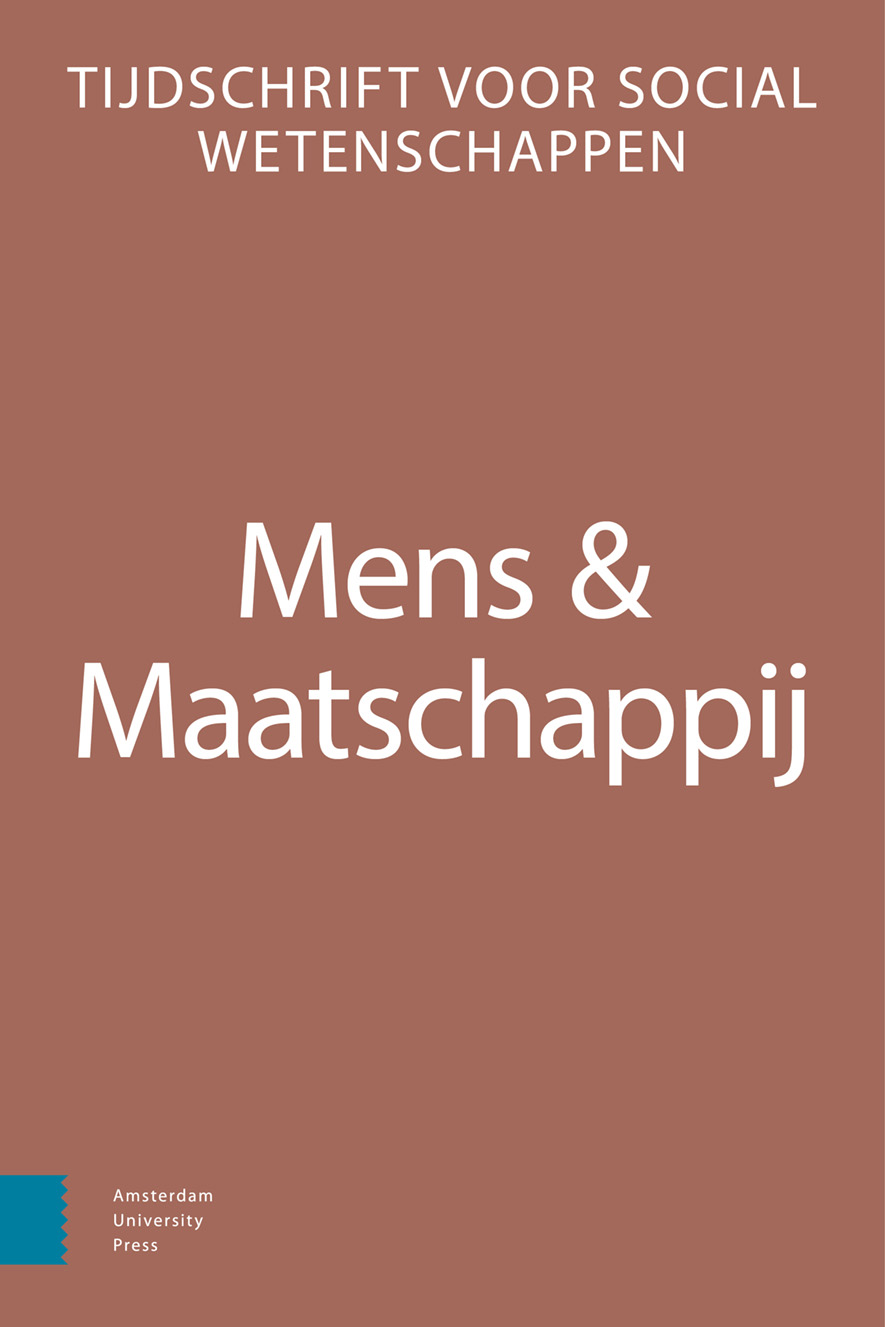- Home
- Publications
- Mens & Maatschappij
- Issue Home
Mens & Maatschappij
Volume 100, Issue 4, 2025
- Artikel
-
- Reflecties op publicaties in Mens & Maatschappij per decennium
-
Volumes & issues
Most Read This Month Most Read RSS feed
Article
content/journals/00259454
Journal
10
5
false
en


